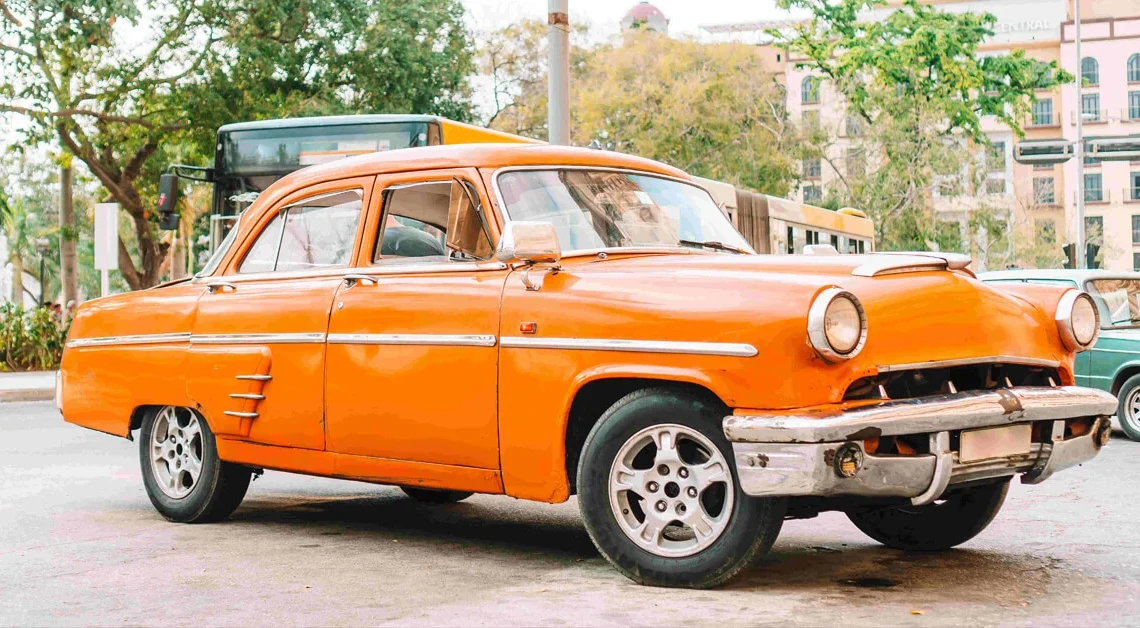We’ve all been there. You’re driving along and someone rear-ends you. Or, you hit a pothole and now your alignment is all off. These things happen, but they often come with a hefty price tag. That’s where insurance comes in. But is it really worth it to have fully comprehensive car insurance, especially if you have an old car? Let’s take a look.
What is Fully Comprehensive Car Insurance?
Fully comprehensive insurance is, quite simply, insurance that covers everything. This includes damage to your vehicle, damage caused by your vehicle, theft, and even sometimes rental car reimbursement. It is the most complete form of coverage you can get, and as such, it is also the most expensive.
Benefits of Having a Fully Comprehensive Insurance For Your Car
The most obvious benefit of having fully comprehensive insurance is that it will cover any damage to your car, regardless of who is at fault. This includes things like accidents and weather damage.
Another big benefit is that it can help you avoid financial ruin in the event of an accident. If you are at fault in an accident, and the other person sustains injuries or property damage, your comprehensive insurance will cover those costs, up to your policy limit.
Finally, having fully comprehensive insurance can give you peace of mind. Knowing that you have full coverage in the event of an accident, theft, or natural disaster can help you relax and enjoy the ride. So in short, below are the salient benefits of having comprehensive coverage for your auto insurance.
Standard benefits:
- Coverage for all types of accidents and incidents.
- Often includes rental car reimbursement.
- Can help you save money on repairs in the event of an accident.
Emotional benefits:
- peace of mind while driving knowing you are covered in the event of an accident or theft.
So, is it worth having fully comprehensive insurance for your car? The answer really depends on your individual circumstances. While it may seem like a no-brainer to just get this type of insurance for peace of mind, it often comes with a high price tag. So, is it worth it?
For New Cars: Probably Yes
If you have a new car, chances are you’re still making payments on it. That means that if something happens to your car, you’re not only out of pocket for the repairs, but you’re also still on the hook for the remainder of your loan payments. In this case, having fully comprehensive insurance makes sense because it will help you avoid being upside down on your loan.
For Old Cars: Probably No
On the other hand, if you have an old car that you’ve already paid off, the decision to get fully comprehensive insurance becomes a bit more complicated. Sure, no one wants to be out of pocket for repairs if they can avoid it. But if your old car isn’t worth very much, to begin with, paying for comprehensive coverage every month may not make financial sense.
How Much Does Fully Comprehensive Car Insurance Cost?
Fully comprehensive insurance typically costs more than just liability insurance, but the exact amount will vary depending on a number of factors. These include the make and model of your car, your driving record, the state you live in, and the deductible you choose. In general, you can expect to pay anywhere from 10% to 50% more for fully comprehensive coverage.
Is it Worth It to Have Fully Comprehensive Insurance?
Ultimately, the decision of whether or not to get fully comprehensive insurance comes down to a personal one. If you can afford the added cost and peace of mind is important to you, then it may be worth it. However, if you’re on a tight budget or your car isn’t worth very much, you may want to forego this type of coverage.
No one likes to think about what could happen if they get into an accident or their car is stolen. But, by being prepared with the right insurance, you can protect yourself financially if the worst does happen. So, when it comes to deciding whether or not to get fully comprehensive insurance, it’s important to weigh the pros and cons carefully before making a decision.
Fully comprehensive insurance is not required by law in most states, but if you finance your car, your lender may require it. Be sure to check with your lender before making a decision about your insurance coverage.
At the end of the day, only you can decide whether or not fully comprehensive insurance is right for you. But, by taking the time to understand your needs and doing some research, you can be sure to make the best decision for you and your budget.
The Bottomline
Ultimately, whether or not you want to pay for fully comprehensive insurance comes down to a personal decision. If you can’t stomach the thought of being without coverage or paying for repairs out of pocket, then by all means sign up for a comprehensive plan. However, if you’re comfortable taking on a little more risk in exchange for lower monthly payments, then basic liability coverage may be enough for you.
There’s no right or wrong answer when it comes to insurance. The best thing you can do is educate yourself on your options and make the decision that makes the most sense for you, financially and otherwise. And, of course, be sure to shop around for the best rates before making a final decision.
Frequently Asked Questions
Is it more expensive to insure a new or old car?
It depends. If you have a newer car, it is typically more expensive to insure because the replacement cost of the car is higher. However, an older car may be more expensive to insure if it lacks certain safety features that newer cars have. In general, however, insurance companies consider several factors when setting rates, including the age and value of the car, your driving record, the type of coverage you want, and where you live. So there isn’t necessarily a definitive answer to this question. Contact your insurance agent or company for more specific information about your situation.
Can I get full coverage on an old car?
You might be able to get full coverage on an old car if it’s in good condition and you have a good driving record. However, it’s generally more expensive to insure an older vehicle, so you might want to compare rates from different insurers before making a decision. shop around and compare rates from at least three different insurers before buying a policy. Also, make sure to read the fine print of any policy before purchasing it so you know exactly what is and isn’t covered. For example, some policies may not cover certain types of damage, like wear and tear or mechanical issues. Keep this in mind when choosing a policy for your old car.
Should I have full coverage on a 15 year-old car?
The simple answer is yes, you should have full coverage insurance on a 15 year-old car. The slightly more complicated answer is that it depends on a few factors, including the value of your car, your driving record, and your personal finances. If you have a newer model car that is worth more than a few thousand dollars, full coverage insurance is a wise investment. Even if your car is older, if you have an abysmal driving record or are considered high-risk by insurers, you’ll also want to consider full coverage. Finally, if you can’t afford to replace your car if it’s totaled in an accident or stolen, full coverage insurance gives you peace of mind and protection against financial ruin.





